2020 Climate Adaptation & Resilience Immersion
Agenda Link | Objectives | Meet the Speakers | Meet the Participants | Meet the Team | Place of Importance Map

Welcome to the 2020 Climate Adaptation & Resilience Immersion (CARI), hosted by the Southeast Climate Adaptation Science Center and the Auburn NRT Training Program. This year we bring together, virtually, students from both programs (Auburn’s NRT and NC State’s Global Change Fellows), as well as students from SE CASC Consortium Universities, to engage over several priority science themes for the Southeast: invasive species, coastal resiliency, Tribal engagement, the science of making conservation decisions, endangered species conservation, sea level rise impacts, and science and climate change communication. This opportunity will provide our southeastern students the context to grasp the depth of these emerging challenges under a changing climate; including the tools, research contexts, and networking opportunities to advance engagement across disciplines.
Meeting Objectives
Learning outcomes of the week:
- Develop collegial relationships among new cohort of interdisciplinary Global Change Fellows, as well as Consortium graduate students and natural, cultural resource managers.
- Gain understanding of the basis of modern resource management agencies’ need to adapt to changing climate and land use, especially through:
a) Decision making analytics and principles
b) Basic and applied climate science. - Discuss principlesof SE CASC mission and operations, including:
a) Co-production of knowledge
b) Ethical engagement with Tribal Nations
Meet the Speakers
Bethany Bradley
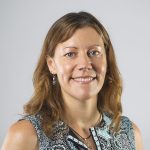
Dr. Bethany Bradley is an Associate Professor of Biogeography and Invasion Ecology in the Department of Environmental Conservation at the University of Massachusetts, Amherst. She is interested in how the geographical locations of species across landscapes and regions can inform ecological understanding of species distributions, invasion risk assessments, and conservation planning. Her research has a strong focus on terrestrial plant invasions, with a goal of understanding how invasive plant distributions, abundance, and impact vary spatially. Dr. Bradley also leads the Northeast Regional Invasive Species & Climate Change (RISCC) Management network, which addresses the question of how we can better manage for upcoming biological invasions in light of climate change.
Chris Burton
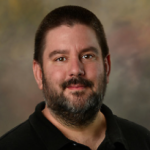
Dr. Christopher G. Burton is a geographer specialized in spatial data science and modeling applied to human-environmental problems, particularly the differential impacts from natural hazards and disasters. His research is focused on subject matter we know less about in natural hazards and disasters scholarship which includes: 1) using spatial analysis and modeling to better understand what natural hazard threats global environmental changes pose for vulnerable communities; 2) measuring social concepts—social vulnerability, resilience, and recovery; 3) using spatial statistics and machine learning to better understand the interdependencies between natural, social, and built-environment systems that generate risk, vulnerability, and resilience to climate-induced hazards; and 4) the modeling of cascading effects following damaging hazard events. Dr. Burton collaborates with scientists throughout the world and works closely with NGO’s that have a mandate to reduce risk and increase resilience. This includes the United Nations Office for Disaster Risk Reduction (UNDRR) and the United Nations Educational, Scientific and Cultural Organization (UNESCO).
Jaime Collazo
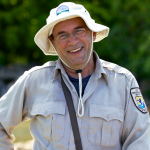
Dr. Jaime Collazo is a Research Wildlife Biologist for the USGS NC Cooperative Fish and Wildlife Research Unit. His research interests include avian population dynamics, species-habitat relationships, predator-prey relationships in wading birds, foraging ecology of migratory shorebirds, breeding productivity in forest birds, and endangered species research and conservation.
Renee Collini
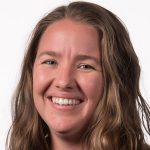
Collini has a dual appointment as a Coastal Climate Resilience Specialist with Mississippi State University and Mississippi-Alabama Sea Grant Consortium. Focused on sea-level rise, Collini facilitates the flow of information between researchers and decision-makers to improve science application. As the Program Coordinator of the Northern Gulf of Mexico Sentinel Site Cooperative, she integrates a multi-state network of stakeholders, researchers, NGOs, and state and federal agencies to build tools, programs, and projects to address gaps in sea-level rise observing, research, and decision-making in the northern Gulf of Mexico. She has collaborated on projects and efforts that have improved coastal community and environmental resilience and has led development of tools that have been applied throughout the Gulf and across the United States and is a recognized leader in resilience across the Gulf of Mexico.
Gabrielle Corradino

Gabrielle Corradino is an ecologist with a commitment to marine science and education. Inspired early on by meeting Dr. Sylvia Earle, she discovered her calling in ocean research. This propelled Gabrielle into completing a Ph.D. in biological oceanography at North Carolina State University where she was a student in the 2016 – 2017 cohort of SE CASC Global Change Fellows. In addition to her formal research presentations, Gabrielle works as a science communicator and in public outreach by disseminating her research as a National Geographic Explorer. Currently Gabrielle is a Knauss Marine Policy Fellow with NOAA’s Office of Education working with environmental educators in the Coastal Ecosystem Learning Centers (CELC) and the Environmental Literacy Program (ELP) on their resilience work.
View Gabrielle’s Global Change Fellow profile
Mitch Eaton
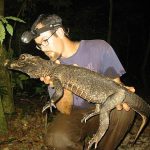
I am a Research Ecologist with the USGS Southeast Climate Adaptation Science Center, based at North Carolina State University where I hold a faculty appointment in the Department of Applied Ecology. Using models to understand spatial and temporal variation of species and habitats, my research focus is on assisting decision makers with information to help make better decisions for managing trust responsibilities under uncertainty and while accounting for competing societal values. My other interests and background include vertebrate conservation in African and Neo-tropical forests, population demographic modeling, population genetics and systematics. I earned my Ph.D. (2009) in ecology and evolutionary biology from the University of Colorado, studying African crocodile ecology and conservation.
Meg Goecker
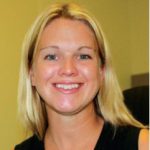
With 18 years of experience in applied marine and coastal ecology, Meg has worked with state, federal, and NGOs across northern Gulf of Mexico to develop and implement large scale oyster, marsh, and seagrass restoration projects. Monitoring current project successes and adapting future projects based on lessons learned drives Meg’s project management focus and is the basis of her vision for many more large scale coastal restoration projects to come.
Melody Hunter Pillion

Melody Hunter-Pillion, a television news journalist, returned to academia to share community narratives. Melody earned an MA in Liberal Studies at Duke University before teaching journalism at N.C. State University. A Ph.D. student in public history at NCSU, Melody studies nineteenth century Atlantic World history. She produced an African American history video series, A Storied Past, for the North Carolina Museum of History, receiving a 2019 Southeastern Museum Conference award. Melody developed an oral history project and podcast with African American farmers and fishermen, exploring the impact of climate change on community cultural heritage. She also conducted oral histories with environmental resource managers in the Caribbean with SECASC. Melody is the Associate Director of Communications and Strategy for the Center for the Study of the American South at UNC-Chapel Hill, where she produces the university’s new Southern Futures Podcast.
Michelle Jewell
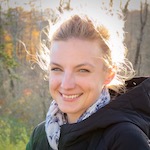
Michelle Jewell is the lead science communicator for NC State’s Department of Applied Ecology. Her scicomm work has been featured on Discovery’s Shark Week, the BBC, and even The Bachelor.
Danielle Lawson
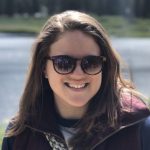
Danielle is an Assistant Professor at Penn State University with a joint appointment in Recreation, Park, & Tourism Management as well as Science Education. Danielle was a student in the 2018-2019 cohort of SE CASC Global Change Fellows, enrolled in the Department of Parks, Recreation, and Tourism Management. Danielle’s PhD research focused on determining how to leverage the unique climate change views of younger generations to increase the climate literacy of older generations, through a phenomenon called intergenerational learning. View Danielle’s Global Change Fellow profile
Lindsay Maudlin
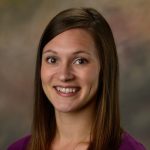
Lindsay was a student in the Spring 2018 cohort of SE CASC Global Change Fellows and is now a Postdoctoral Fellow at Auburn University. She works in Dr. Karen McNeal’s Geoscience Education Research and Geocognition Lab and studies climate literacy in informal education settings. Her research uses eye tracking and skin biosensors to evaluate the efficacy of existing climate education and communication tools.
View Lindsay’s Global Change Fellow profile
Karen McNeal
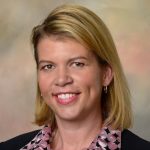
Karen McNeal teaches undergraduate and graduate courses in Earth System Science, Global Change, Climate Change Literacy and Communication, and Discipline Based Education Research in the STEM Undergraduate Classroom. Students in her group conduct research in the field of geoscience education/geocognition and typically use mixed methods research (e.g., qualitative and quantitative approaches) to investigate geoscience teaching and learning challenges in formal and informal settings. Her work ties together the affective and cognitive domains of learning in the geoscience education/geocognition field. Her group uses a suite of tools to investigate including psychomotor tools (e.g., eye-tracking, pupillometry, and skin biosensors), psychometric tools (e.g., concept inventories), and open-ended approaches (e.g., interviews, concept-maps, etc.) to measure people’s engagement, conceptual understanding, and perceptions about the Earth.
Erin Seekamp
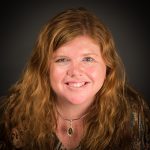
Dr. Erin Seekamp is a Professor, Extension Specialist, Department Extension Leader, and University Faculty Scholar in the Department of Parks, Recreation and Tourism Management at North Carolina State University. She received a doctorate in Natural Resources (Conservation Social Sciences Department) at the University of Idaho. As a social scientist, her research focuses on assessing and fostering capacity within individuals, organizations, and communities to address global change. Dr. Seekamp was a 2019 Research Fellow at the International Centre for the Study of the Preservation and Restoration of Cultural Property (ICCROM), where she expanded her work on climate adaptation planning of cultural resources to World Heritage Sites. She has published more than 80 peer-reviewed papers and reports, written nearly 50 extension publications, and has engaged over 500 community members and practitioners in educational events. She has taught over 20 unique courses at the graduate and undergraduate levels, and has supervised 20 graduate students and post-doctoral scholars.
Eric Sparks

Dr. Eric Sparks is the Director of Coastal and Marine Extension at Mississippi State University and serves dually as the Assistant Director for Outreach and Coastal Ecology Specialist for the Mississippi-Alabama Sea Grant Consortium. His research and extension efforts broadly focus on estuarine and marine ecology, coastal wetlands, coastal restoration, environmental stewardship, citizen science, and marine debris. Eric received his Ph.D. in Marine Sciences from the University of South Alabama and the Dauphin Island Sea Lab and a B.S. in Marine Biology from Troy University.
Andre Taylor

Andre L. Taylor was a student in the 2018-2019 cohort of SE CASC Global Change Fellows. After earning his MA in Public History from North Carolina State University in 2020, Andre was hired by the College of William & Mary as the school’s oral historian. While at NC State, Andre researched how climate change and sea level rise impacts the cultural heritage of the Gullah Geechee community of St. Helena Island, SC.
View Andre’s Global Change Fellow profile
Adam Terando
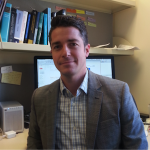
Dr. Adam Terando is a research ecologist with the Southeast Climate Adaptation Science Center. His work focuses on the impacts of climate change on ecosystems and the complex human-environment relationships that drive these processes.
Casey Thornbrugh
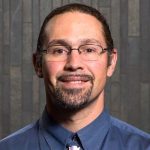
Dr. Casey Thornbrugh serves as the Tribal Climate Science Liaison with the United South and Eastern Tribes (USET). Casey works closely with the Northeast and Southeast Climate Adaptation Science Centers (NE/SE CASCs) to provide current climate science information, identify climate research needs and priorities, and to provide climate adaptation planning support for Tribal Nations. Casey is a citizen of the Mashpee Wampanoag Tribe with an educational background in physical geography, climate, and American Indian studies.
Will Underwood

Will Underwood is a 5th generation native of Baldwin County, AL and still lives on the family farm where he was inspired to pursue a career focused on managing our natural resources. He holds Bachelor and Master of Science degrees in Wildlife Biology from Auburn University. Will serves as the Coastal Section Administrator for the State Lands Division of the Alabama Department of Conservation and Natural Resources. In this role, he provides oversite and guidance to both the Alabama Coastal Area Management Program and the Weeks Bay National Estuarine Research Reserve. Will is a naturalist at heart, and enjoys reading the landscape to better understand the relationships between natural processes and human interaction with those processes. He has particular interest in the natural history of the southeast, fire ecology, and understanding coastal change. He enjoys spending time with his two daughters, botanizing the wilds of the Southeast, and building useful things in his vintage woodworking shop.
Adrienne Wootten
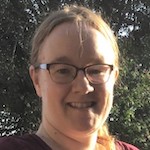
Dr. Adrienne Wootten joined the South Central Climate Adaptation Science Center (SC CASC) in January 2017 as a Postdoctoral Research Associate specializing in downscaling and climate modeling, the uncertainty and accuracy associated with the appropriate use of climate projections and data impact assessments and planning. Additionally, she helps stakeholders with technological assistance and the appropriate use of climate projections for decision making processes. She received her B.S. in Meteorology with a minor in statistics, M.S. and Ph.D in Atmospheric Science from North Carolina State University. For nearly 10 years, Dr. Wootten was a student researcher at the North Carolina State Climate Office and worked closely with the Southeast Climate Adaptation Science Center on projects involving both scientific research and stakeholder engagement. Aside from her work with the SCCASC, Dr. Wootten is also the editor-in-chief and one of the founding members of the Early Career Climate Forum, which works to promotes communication and collaboration among graduate students and early career professionals in climate science and related disciplines across the United States. Dr. Wootten’s passion for the field of climatology was strengthened after a trip to New Orleans after Hurricane Katrina. Once there, she and a team of volunteers assisted with the debris cleanup and rebuilding process. It was during this trip and witnessing the immense devastation that she was able to connect meteorology with how it affects people’s lives. The experience left a permanent mark for Dr. Wootten and provided the fuel to continue researching and working toward a better understanding of weather and climate. When she isn’t working, she enjoys being a stained-glass crafter and traveling, particularly to visit family and friends. Adrienne was a student in the 2012 – 2013 cohort of Global Change Fellows.
View Adrienne’s Global Change Fellow profile
Meet the Participants
Rebecca Asser
Department of Landscape Architecture and Environmental Planning, North Carolina State University
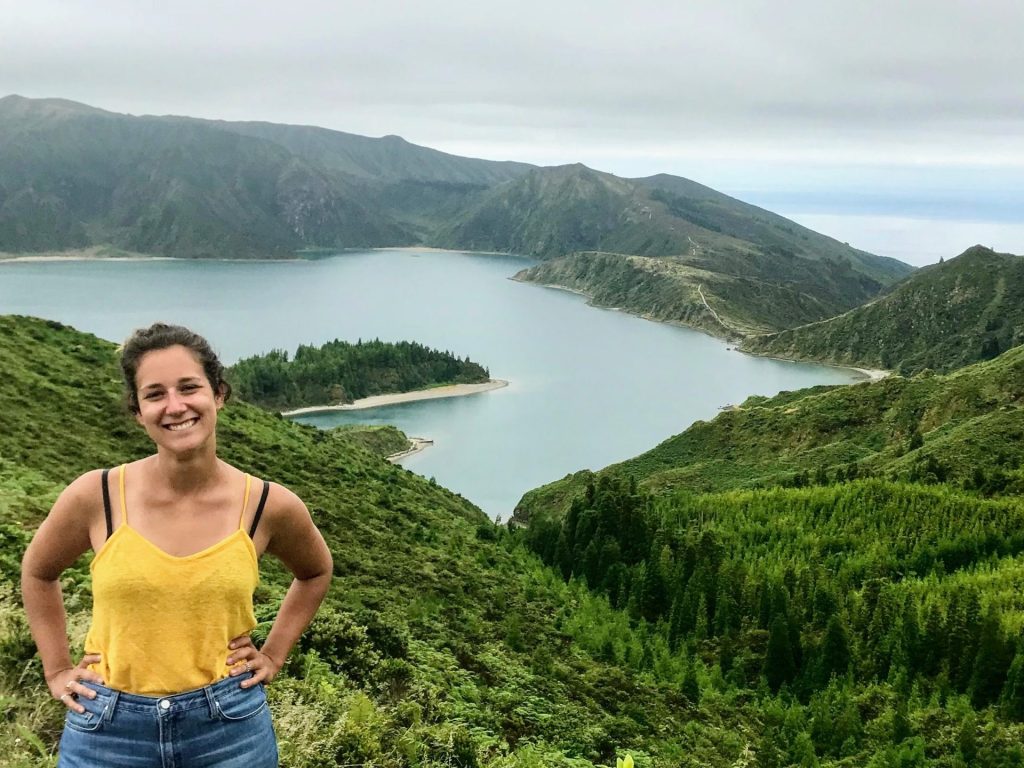
Hi! I’m Rebecca Asser and I’m a Masters of Landscape Architecture student. I’m Dutch-American, have moved a lot but spent high school and college in Arizona. During my undergrad, my time in AmeriCorps allowed me to work with many different communities throughout Northern Arizona. Then, I became an elementary teacher in rural Eastern North Carolina and Brooklyn, NY. I was further exposed to educational and environmental inequities, and these harsh truths motivate me in my studies today. I chose landscape architecture because the field intersects environmental stewardship with the human experience. I am specifically interested in using design to support place-attachment and cultural significance of historically marginalized groups in land-use and climate change planning. In my spare time I enjoy exploring, hiking, and gardening.
Place of Importance: Rural Eastern North Carolina changed my entire outlook on life and American society. It is diverse and rich with history, which plays out in the environmental inequities brought to the forefront by rising sea levels and intensified flooding.
Jin Bai
Department of Forestry and Environmental Resources, North Carolina State University
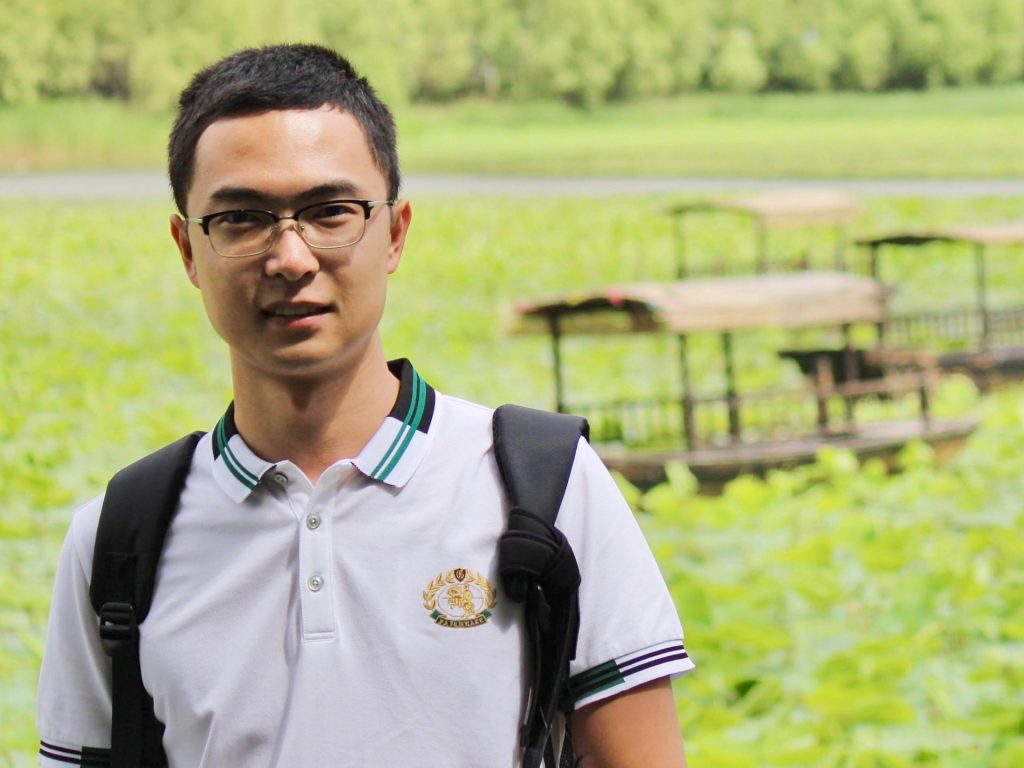
I am a new Ph.D. student advised by Dr. Madhusudan Katti in the department of Forestry and Environmental Resources at North Carolina State University. I have studied avian homing behavior in different gradients of urban landscapes. My Ph.D. research will continue to focus on urban ecology and how urban landscape feature affects avian movement patterns. Urban green space provides crucial ecosystem services and gives people opportunities to interact with nature. As land-use change rapidly increasing, it is crucial to study the potential influence of urbanization on avian movement patterns.
Place of Importance: Raleigh-Durham Triangle area, Urbanization and climate change.
Kendall Beals
Department of Ecology & Evolutionary Biology, University of Tennessee
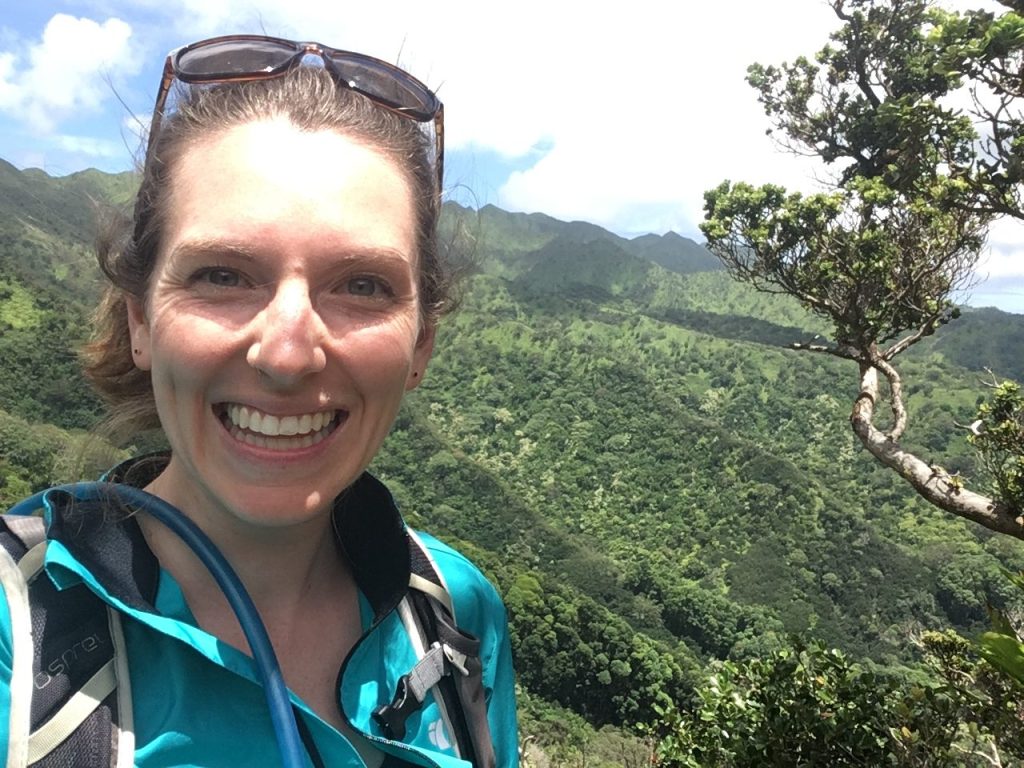
The focus of my research is to identify the role of soil microbiome composition and function for plant function in both natural and disturbed ecosystems. To address these questions I use tools from microbial ecology, community ecology, evolutionary ecology, ecosystem ecology, analytical chemistry, and bioinformatics. As an ecologist interested in integrating high-quality science with conservation and restoration practices, my goal is to conduct and communicate research that can enhance management perspectives.
Place of Importance: Great Smoky Mountains National Park
Tira Beckham
Department of Forestry, North Carolina State University
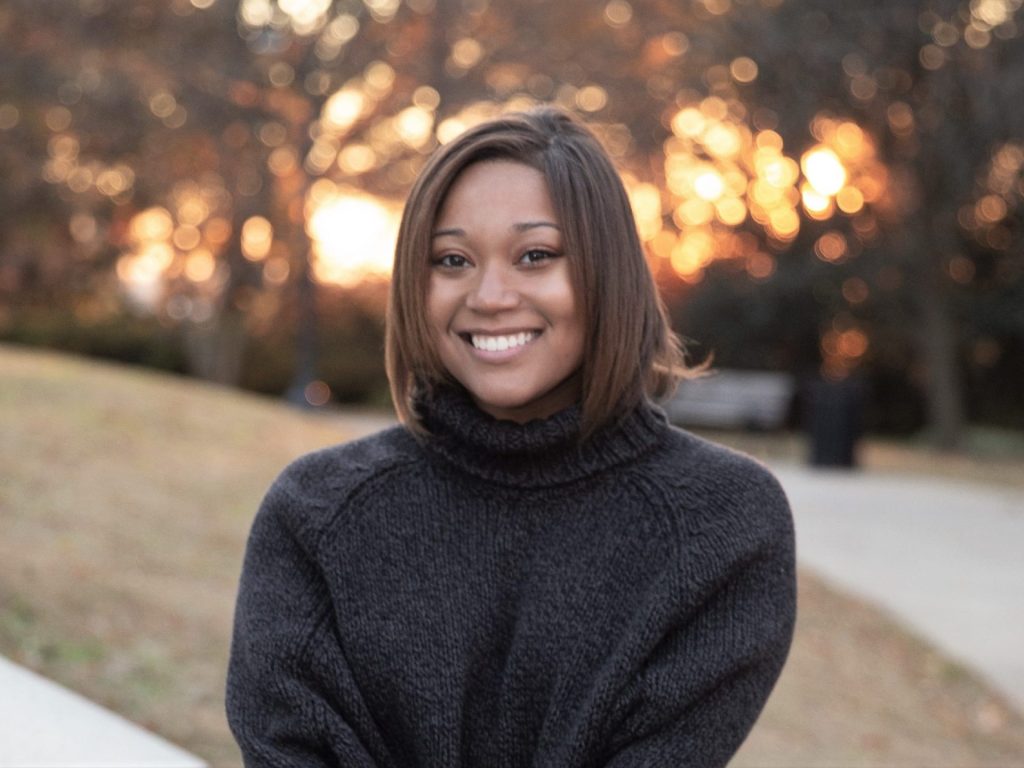
My name is Tira Beckham, I am an incoming Master’s Student from Greenville, SC in the Natural Resource Policy program. I currently work with the NC Department of Environmental Quality. Of note, I have worked on the 2019 NC Clean Energy Plan and the 2002 NC Climate Risk Assessment and Resilience Plan. My thesis will focus on the barriers to climate adaptation in low-income, rural, and tribal communities with a focus on Robeson County, NC.
Place of Importance: Robeson County is in southeastern NC and is home to the Lumbee tribal community. It is designated by the NC department of Commerce as a Tier 1 county with a median income of approximately $33,000. Because this is a primarily rural area that rests within a floodplain, it experiences significant flooding during and after large coastal storms. Because of their lack of local capacity, they are slower to recover after these storms and often unable to build resilience for the next storm
Ally Brown
Department of Geosciences, Auburn University
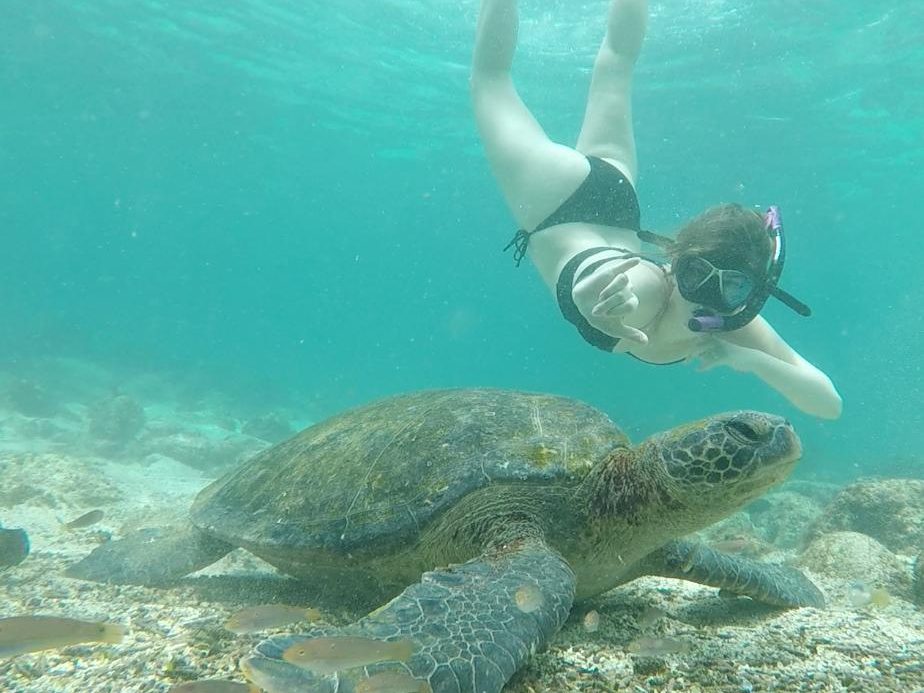
My name is Ally Brown and I will be an incoming freshman at Auburn University pursuing a doctoral degree in Earth and Atmospheric Science with a cognate in Geoscience Education. I just finished my undergraduate degree at University of South Carolina in Marine Science where I worked with Dr. Ryker researching the relationship between student success and engagement in introductory Geology labs. My research and teaching opportunities shaped my career trajectory greatly and I hope to eventually become a professor with the goal of expanding geosciences to underrepresented groups and areas of the world. I was born and raised in Louisville, KY, I have 2 brothers and 2 sisters, I adore cats (and anyone who adores cats), I love true crime documentaries/podcasts, and recently found a passion for roller skating over quarantine. I am so excited to collaborate on the NRT Climate Resilience project with other exceptional students from around the US and take a step towards helping those who are negatively effected by the changing environment.
Place of Importance: One place that has unique meaning to me is the Galapagos Islands. I was fortunate to spend a semester on San Cristobal island and study their enchanting environment as well as the management issues that Galápagos natives face while trying to protect their home. Climate change disproportionately effects the Galápagos islands; warmer and rising seas are changing the marine ecosystem that surrounds the islands. As a society that relies heavily on tourism, they must juggle the need to protect the ecosystem that sustains their economy with the harmful effects tourism has on the islands.
Haven Cashwell
Department of Geosciences, Auburn University
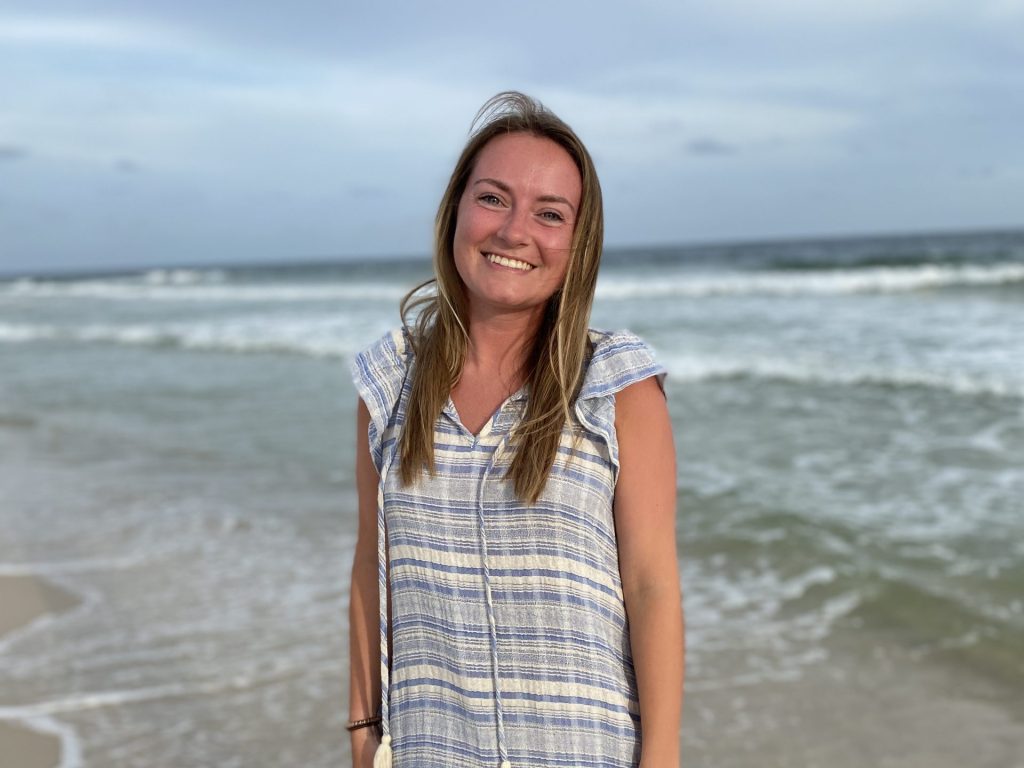
Haven Cashwell is currently pursuing her M.S. in Geography under the advisement of Dr. Karen McNeal. Her thesis research involves eye-tracking a decision support system, including how climate change will impact certain species, in order to benefit United States Fish and Wildlife Service biologists to incorporate climate information when they are completing Species Status Assessments. She is from Marshallberg, North Carolina and graduated with a B.S. in Meteorology and a minor in Environmental Science from North Carolina State University. Her general interests are fishing off the coast of North Carolina, boating in the Core Sound, and traveling to new places.
Place of Importance: Marshallberg, North Carolina is where my family lives and is one of my favorite places to be. This town is on the coast of North Carolina, so it will experience changes with rising sea level and increasing temperatures. I want to eventually research a coastal town like Marshallberg to understand the climate resiliency of these towns.
Steph Courtney
Department of Geosciences, Auburn University
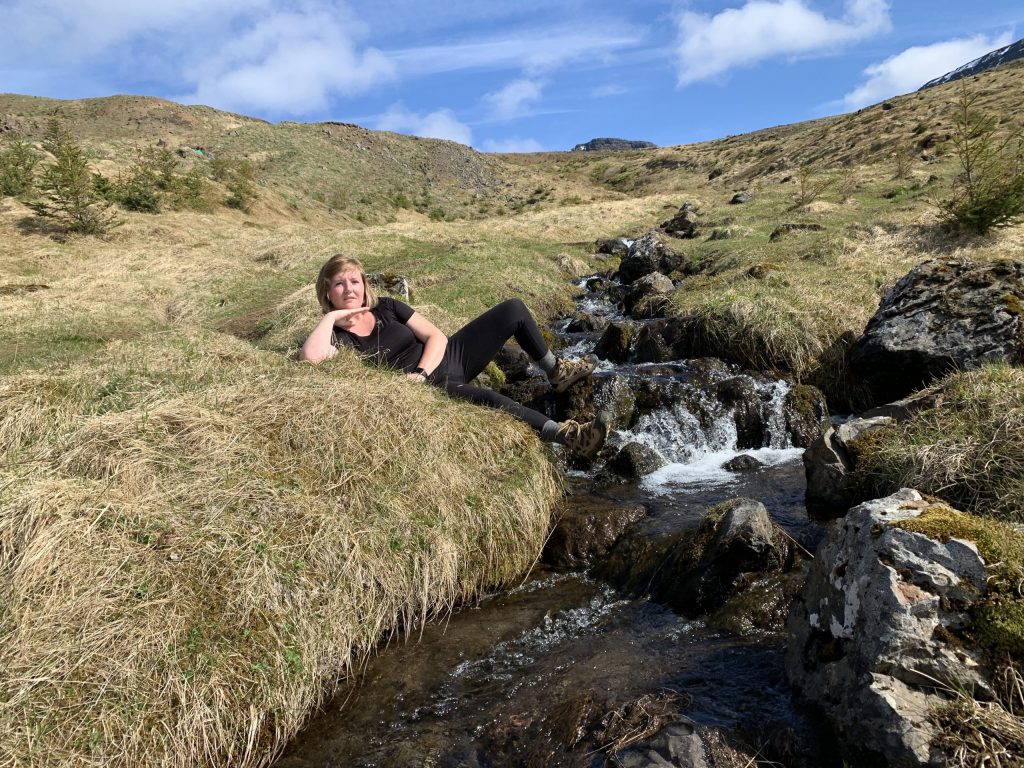
I am a second-year PhD student in the Earth Systems Science program at Auburn University working under Dr. Karen McNeal in the Geocognition and Geoscience Education Lab. I completed my B.A. in geology in 2014 in my home state of Wisconsin, then my M.S. in geology at Auburn in 2019. Specifically, I research climate change communication, from my M.S. project working with general audience comprehension and perceptions of climate change graphs, to my current research with natural resource managers’ use of climate change research.
Place of Importance: I have a close connection with Lake Superior, especially the north shore region of Minnesota. In general, the colder Great Lakes region won’t have horrible outcomes for its human inhabitants — however, like anywhere else, drastic change will be difficult for flora & fauna to adjust to. Increased storms, warming water (though more slowly in Lake Superior), increased precipitation and heavy precipitation events, etc., will affect natural systems and the human activities that rely on them.
Greta Easthom
Department of Marine, Earth, and Atmospheric Sciences, North Carolina State University
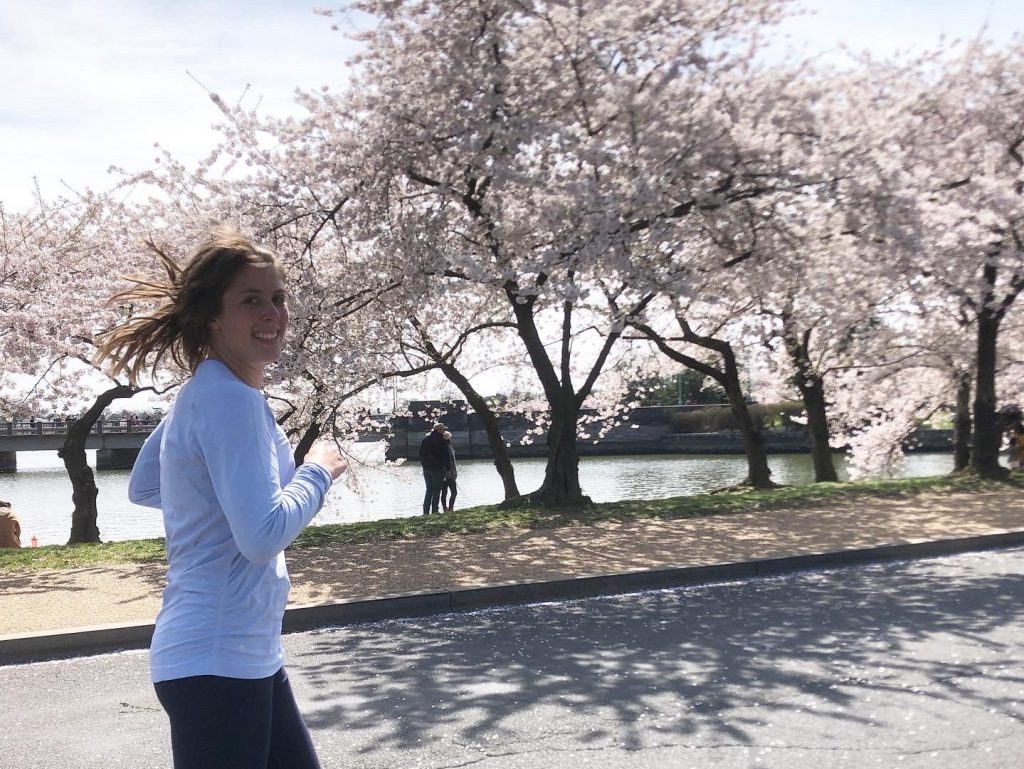
Since my undergraduate years at University of Maryland, where I obtained two degrees in journalism and atmospheric science, I’ve been passionate about the importance of weather and climate communication. This fellowship provides me the opportunity to keep honing a dual skill-set while I pursue my research project studying tropical moisture plumes referred to as atmospheric rivers and how they may be intensifying in a warming world. Hailing from Annapolis, Maryland, I always feel most at home when I’m near bodies of water or the beach. I also love to run most days and bike, hike, or swim in my spare time. I’m an avid reader and also enjoy classic sitcoms such as The Office or 30 Rock. As a first-year graduate student, I’m excited to meet new people through SE CASC and make new connections!
Place of Importance: Atmospheric Rivers primarily target the west coast of the continental U.S., but sometimes may snake up the east coast as well. While atmospheric rivers have some positive outcomes by alleviating California’s droughts for instance, they also can lead to dangerous flash and coastal flooding. A warmer world means more moisture is available to further fuel these systems and thus inundate the coastal areas I love so much!
Hallie Fischman
Department of Coastal Engineering, University of Florida
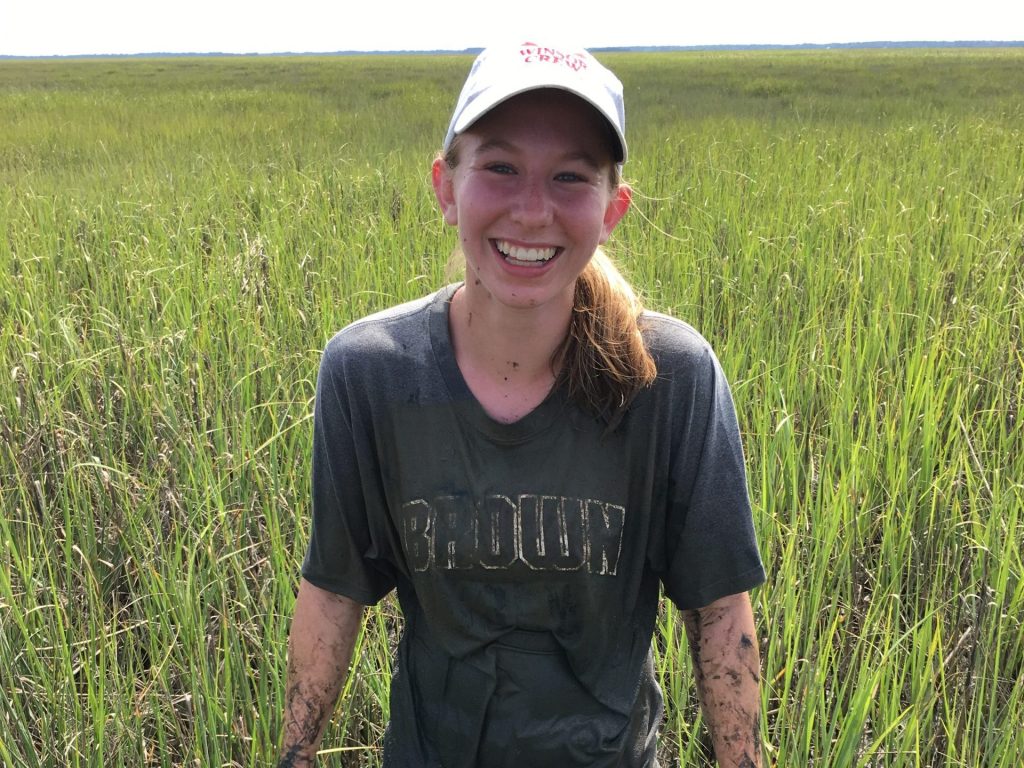
I am an incoming PhD student at the University of Florida focused on coastal restoration. Specifically, I am studying how synergistic interactions can be utilized to improve restoration techniques. I have experiments planned looking at how co-planting two species of dune grasses may improve sand dune restoration and how the deployment of both mussels and oysters into an estuary may improve water quality in a synergistic manner. Prior to starting my PhD, I worked in sand dunes and salt marshes on the Georgia Coast and Rocky Reefs in Christchurch, New Zealand.
Place of Importance: Sapelo Island, Georgia. Sapelo Island is a remote barrier island that faces problems from hurricanes, sea level rise, and eutrophication
Nate Gibson
Department of Ecology and Evolutionary Biology, University of Tennessee
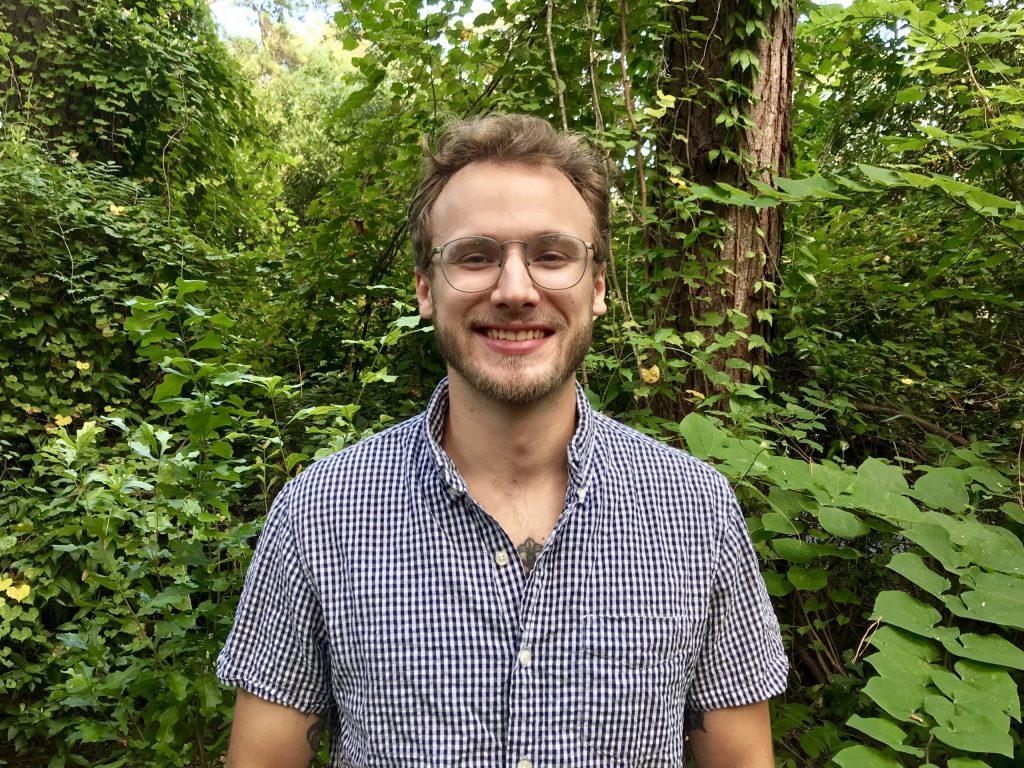
I’m Nate Gibson, a second year PhD student at UTK. I study urban ecology and social-ecological systems/dynamics. Specifically, I am interested in the socioecology of disease, particularly vector borne (rodents, snails, and mosquitoes) and emerging infectious diseases. I am also interested in urban green infrastructure and green space, and how those areas might influence pathogen vector populations and/or pathogen prevalence.
Place of Importance: My field work is based out of New Orleans, Louisiana. The city is directly threatened by global change due mainly to issues of water management. New Orleans now experiences frequent flooding as a result of thunderstorms, not to mention hurricanes.
Kate Gorman
Department of Applied Ecology, North Carolina State University
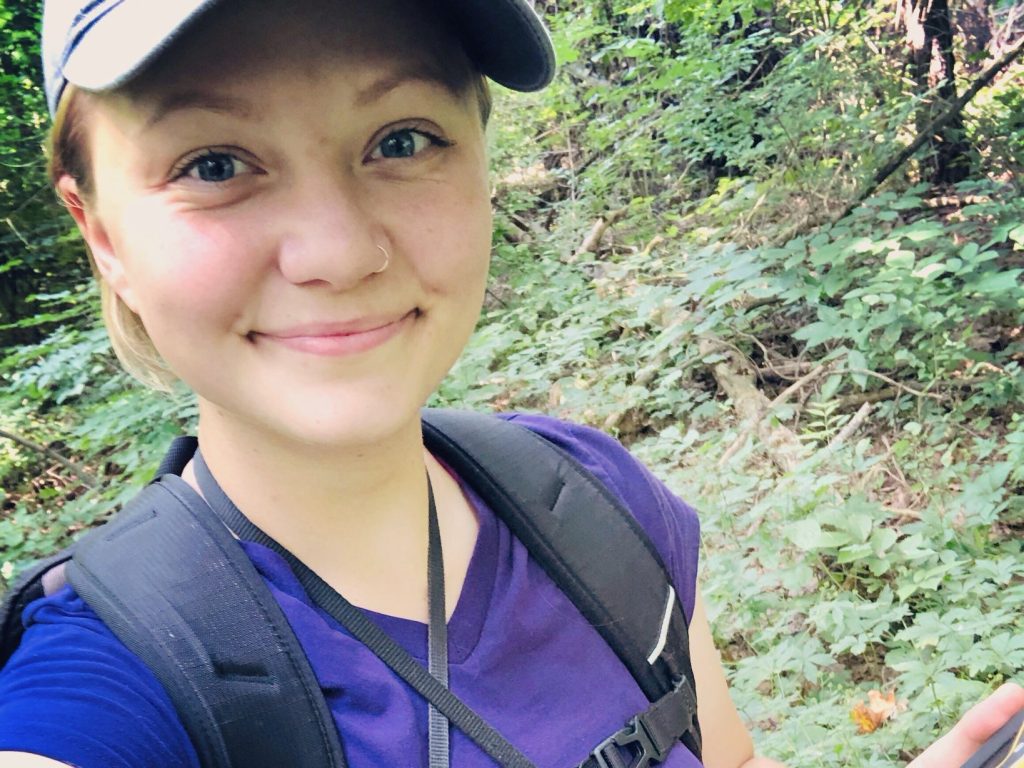
I recently earned my Bachelors in Forestry, Fisheries, and Wildlife Science from The Ohio State University. During this time, I worked on several studies that included urban streams, invertebrate community structure, and bee identification. While living and working in Columbus, Ohio, I became fascinated with how growing cities can affect their surrounding ecosystems as well as the ecosystems woven throughout the urban center. After graduation, I worked at a small wetland consulting firm where I was able to interact with clients and learn more from the people that were directly interacting with these ecosystems on a daily basis. However, I noticed differences in how those with more resources afforded to them interacted with their environment as compared to those with less resources. I became interested in how the socioeconomic status of people that live in cities correlates to biodiversity in bees, the taxa I am most drawn to. I’m excited to test these ideas in Raleigh and at NCSU!
Place of Importance: My research location is the city of Raleigh, North Carolina. I am so excited to study bee communities in this location because I am curious how urban centers can more successfully support biodiversity. The human population is becoming increasingly urbanized as time goes on, meaning urban centers will likely become more prevalent globally. In order to support conservation efforts on a local and global scale, we must understand how growing cities affect vulnerable taxa, especially vulnerable groups such as pollinators. Raleigh is growing quickly and serves as the perfect location for such a study.
Kat Horvath
Department of Electrical and Computer Engineering, Duke University
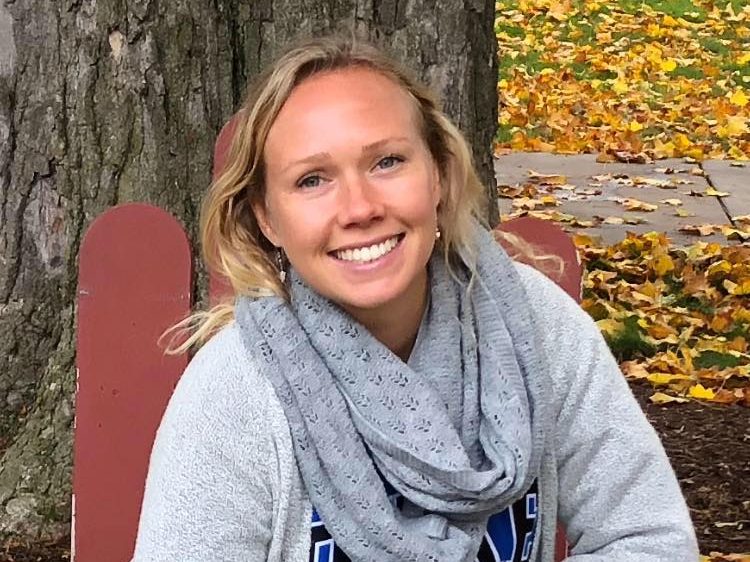
I’m a fourth-year PhD candidate in the Department of Electrical and Computer Engineering (ECE) in Duke University’s Pratt School of Engineering. I’ve spent my time at Duke researching, designing, and constructing portable mass spectrometers to be used for environmental applications (leak detection, pollution detection, air quality studies, etc.). At Duke, I serve as a co-president for Duke Climate Coalition, the ECE representative for the Engineering Graduate Student Council, and I’m a Duke Environmental Impacts Fellow. In my “free time” I enjoy playing volleyball, gardening, being in nature, and fostering cats (amongst other “normal” 20-something-year-old activities). I’m grew up in Northern Virginia, completed my Bachelors of Science at the University at Albany (SUNY), and spent two years working at Cree Inc. as a Process Sustaining Engineer manufacturing LED lightbulbs prior to returning to graduate school at Duke. I plan to use my career to combat climate change, fight for social and environmental justice, and ultimately leave make the world a better place.
Place of Importance: A place that I truly love is Hunting Island State Park in South Carolina. My grandma has lived near this beach my entire life and it’s become my “home beach.” Hunting Island State Park is a barrier island and in the past ~5 years it’s been walloped by multiple hurricanes, tropical storms, and severe thunderstorms. It’s been significantly transformed by these storms and is a constant, present reminder to me that our climate is changing and that the time to act is now. I love this place for it’s diverse wildlife, tortured shorelines, and normally gentle surf. I hope this place still exists for me to one day bring my future children there to enjoy and fall in love with.
Amanda Hyman
Department of Ecology and Evolutionary Biology, University of Tennessee
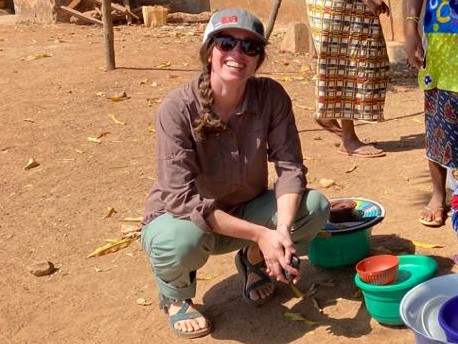
I am Amanda Hyman, a third year PhD student in the Armsworth Lab at the University of Tennessee. Prior to UTK, I earned my BS at Montana State University in Environmental Biology and my MS at Virginia Tech in Fish and Wildlife Conservation with a focus in Human Dimensions. Following my MS I moved to Tanzania to work with a small NGO for lion conservation. I then found my way to a USAID Innovation Lab for Fisheries and Aquaculture in Oregon. I now am combining my previous experiences to work on my PhD. I currently work at the intersection of conservation and economics primarily focusing on intertemporal tradeoffs in conservation both here in the US and in Benin, while also collaborating with the SE CASC Evaluation team.
Place of Importance: Benin. Increased droughts paired with more extreme weather events and decreasingly reliable seasonal patterns.
Harsha James
Department of Agricultural Education and Communication, University of Florida
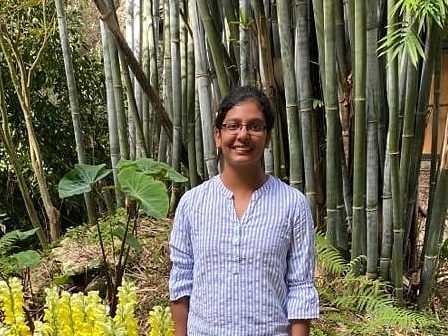
I am Harsha Elizabeth James. I am coming from India. I did my Bachelors in Fisheries Science and Masters in Fisheries Extension (both from India). After that, I worked as a Senior Research Fellow (SRF) for the Central Marine Research Institute, India. As an SRF, I did research related to climate change vulnerabilities of fishers/coastal communities. To expand my knowledge and understanding of the field, I am now pursuing my Ph.D. at the University of Florida.
Place of Importance: The Poonthura village, located in the suburbs of Thiruvananthapuram district, the capital of Kerala, India, is a coastal village predominantly comprising of fisher – folk settlement. Poonthura is exposed to natural calamities like sea intrusion, storms, and shoreline changes. It is located in the southwest part of India, identified as one among the twenty-four climate change hot spot regions globally. Climate change hot spots – can be defined as the ‘live labs’ where the manifestation of the climate change impacts is observed “first.” The houses here are constructed near the sea, often resulting in displacement and relocation during heavy monsoon. The tsunami of 2004 caused massive damage to fishing inventories like boats, nets, houses, and other fishing equipment in this area. The shoreline changes and seawater intrusion are the visible impacts of climate change in this area. The monsoons are a bit ferocious in the area, and hence relocations are necessary during monsoons.
Kathryn Jewell
Department of Forestry and Environmental Resources, North Carolina State University
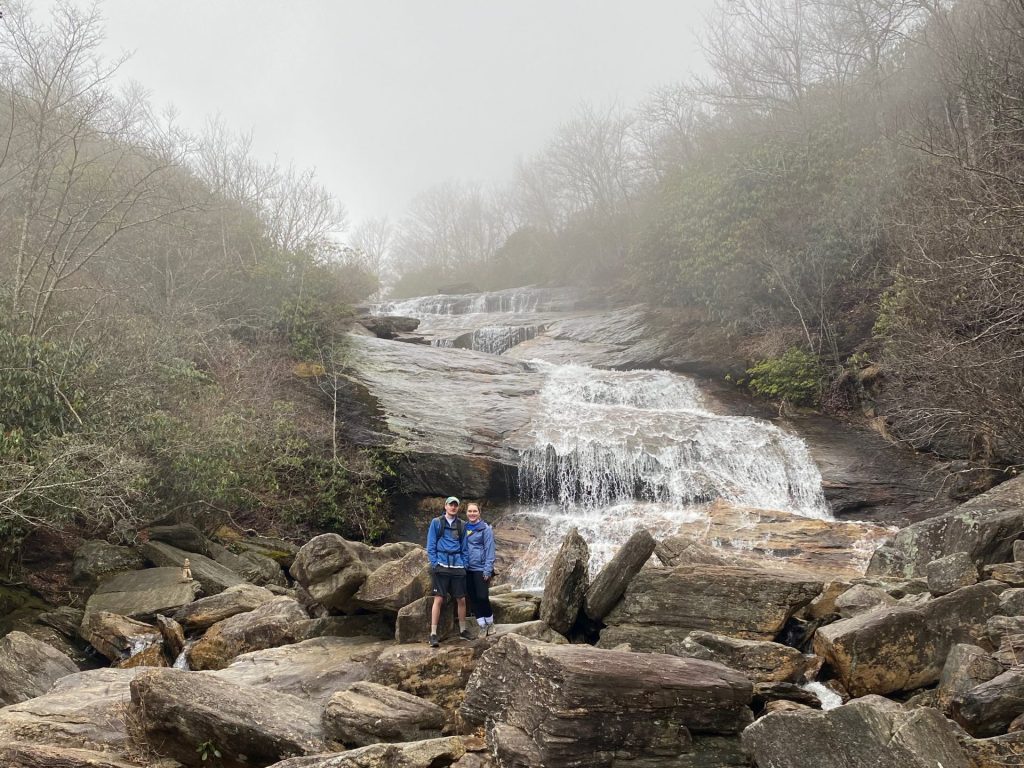
My name is Kathryn Jewell, and I am a second year Masters student at NC State in the Fisheries, Wildlife and Conservation Biology program. My research is focused around identifying the past, present, and future conservation challenges in the southeast US, as told by directors and commissioners of wildlife agencies. As a part of my research, we are diving a little deeper into why climate change never really popped up in the initial interviews. I grew up in Wilmington, which is on the coast of North Carolina, where I witnessed a number of things in the environment changing. I presently live in Apex with my fiance and rescue pup, Turbo.
Place of Importance: My research location is at the regional level, and there are a number of global change concerns there – but a location that means the most to me is my hometown of Wilmington, NC. Being on the coast, there have already been a number of changes, such as sea level rise, shifting coastal islands and increasing hurricanes. I have definitely seen a change in these growing up, and it is one of the reasons I wanted to go into an environmental field in the first place.
Megan Johnson
Department of Civil, Construction, and Environmental Engineering, North Carolina State University
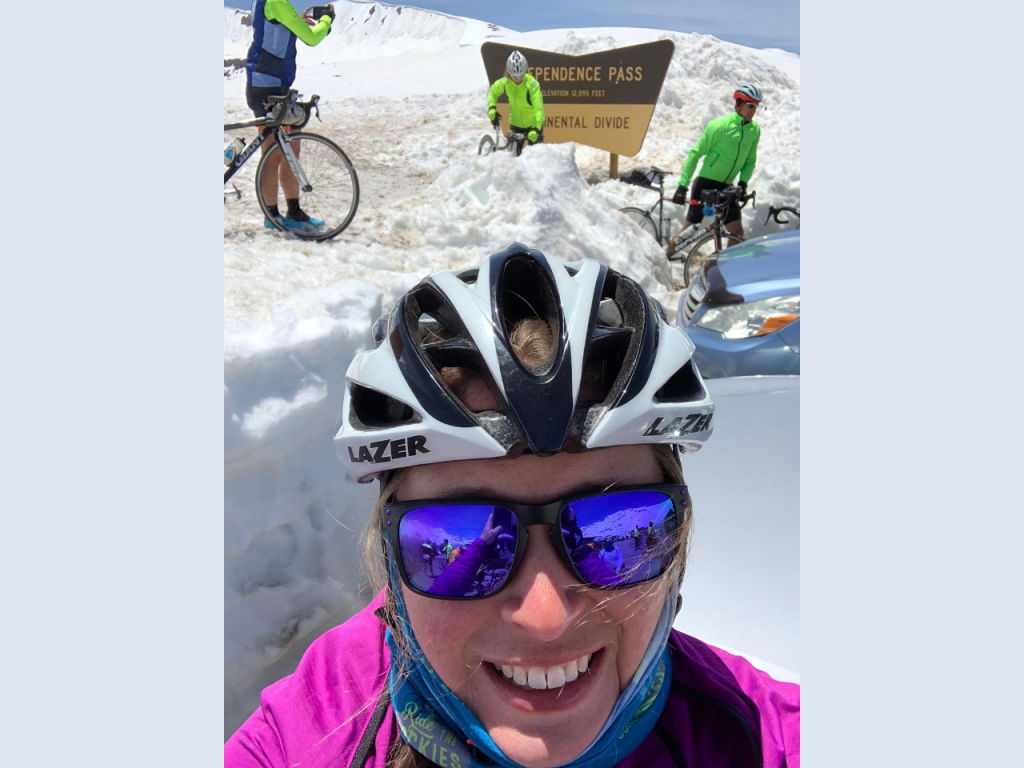
I’m entering my fourth year as a PhD student at NC State, and I am studying the impacts of wildland fire smoke on air quality and human health. I’m originally from Colorado but ended up in Raleigh after working at the Bureau of Air Quality in South Carolina. Prior to that, I was at the Desert Research Institute/University of Nevada, Reno, where I completed an M.S. in atmospheric science and worked on drought-related science communication for Governor Sandoval’s Drought Forum project. I got my B.S. in environmental engineering from CU Boulder and also previously worked as a lab/field tech for the airborne observation platform at the National Ecological Observatory Network in Boulder. I am enjoying my experience living in the southeast but I return to Colorado as often as I can to visit family and friends and to go skiing, hiking, and cycling.
Place of Importance: Colorado, and much of the southwestern US, is very important to me and faces global change challenges of increased wildfire, drought, and reduced snowpack (among others).
Samantha Jordt
Department of Applied Ecology, North Carolina State University
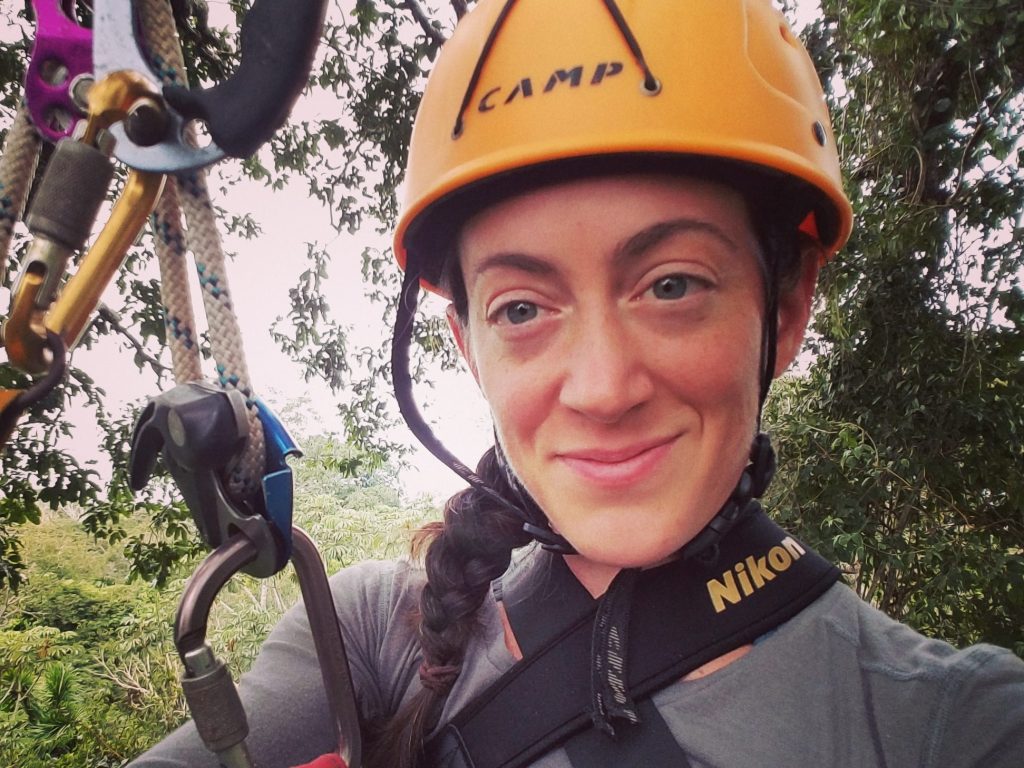
I am graduate student in the Department of Applied Ecology, working with Brad Taylor. I am fortunate to be from a beautiful peninsula, surrounded by state owned natural areas. When I wasn’t hiking through the forest to the Lake Michigan shoreline, I was wading through the black water creek and boreal wetlands near my home. I am broadly interested in aquatic insects, and I want to understand how rapid global change impacts their ecology and life histories so that I may help inform restoration and management practices.
Place of Importance: I am most interested in streams and the insects that live within them. Aquatic insects are a taxonomically diverse and functionally important group of organisms because they contribute to numerous ecosystem processes, including water filtration and detritus processing, and they are a key intermediate link in aquatic food webs. Rising temperatures, storm severity, and drought threaten these organisms in ways we have yet to fully understand.
Hemant Kumar
Department of Civil, Construction, and Environmental Engineering, North Carolina State University
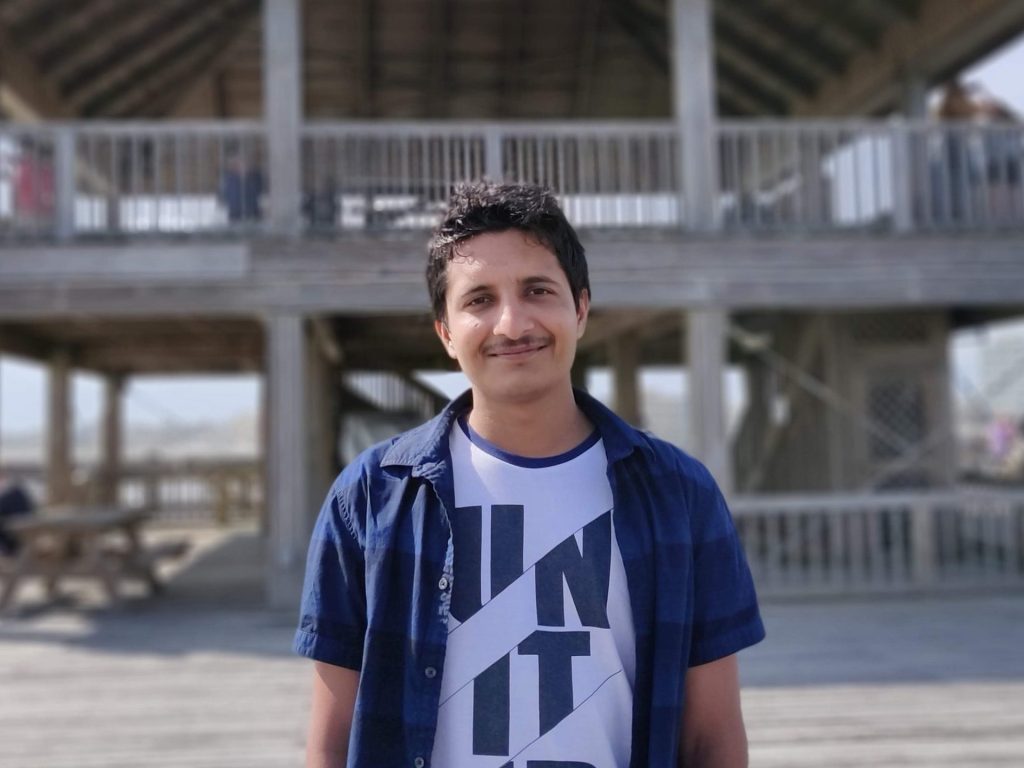
I hail from a small agrarian village in Northern India. I majored in Civil Engineering during my undergrad because I I wanted to learn engineering of basic amenities. however, I slowly developed a special interest in the study of water and all the things it effects. I studied river morphology, droughts, hydrological modeling, crop production, etc. I have seen my surroundings change due to human activities (groundwater overdraft, deforestation) and climatic changes (changing rainfall patterns) over the course of last decade. I wish to study these changes so that we can come up with adaptation strategies. I like reading, hiking, listening and traveling too.
Place of Importance: My current research location is the lower Flint River basin in southwest Georgia. It faces changed rainfall patterns (along with increased number of extreme rainfall events)which will impact the availability of water for agricultural during summer months. This will result in major changes in the agricultural practices of the region.
Tricia Kyzar
Department of Urban and Regional Planning, University of Florida
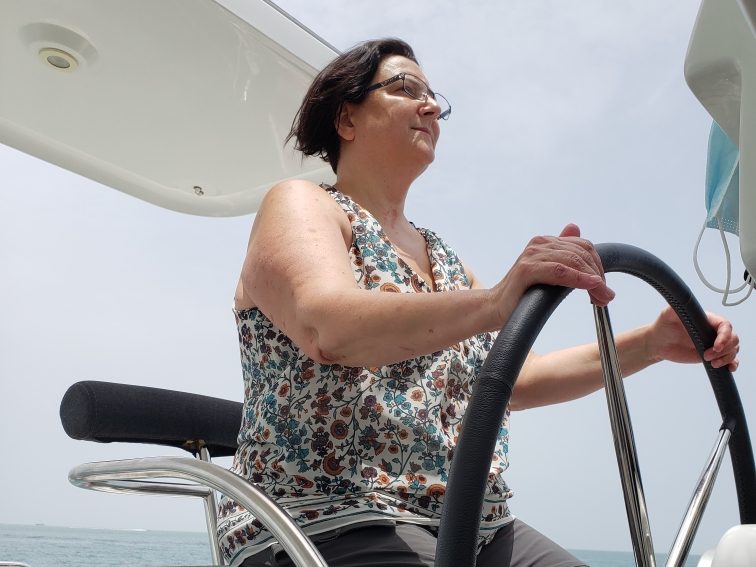
Tricia Kyzar is a Ph.D. student in Urban and Regional Planning at the University of Florida and is also completing a certification in Geospatial Analysis. She is currently preparing her dissertation proposal and hopes to make her presentation in October. Her project will be assessing the vulnerability of onsite sewage treatment and disposal systems to sea level rise and storm surge in order to develop adaptation plans where needed. The project location is the City of St. Augustine in northeast Florida. Following completion of her Ph.D. Tricia wants to use her skills in Urban and Regional Planning, GIS and spatial analysis to model changes in coastal environments to support environmental and urban planning policy.
Place of Importance: Most of my research takes place within the Guana Tolomato Matanzas National Estuarine Research Reserve (GTM NERR or GTM) in northeast Florida. As a coastal area it is facing the same challenges as many coastal areas, sea level rise, increased storm related challenges, etc. The latitudinal location of the GTM places it in a transition zone where we are seeing the northward migration of mangroves and the changes this is bringing to estuaries and coastal shorelines. One unique challenge for the GTM is a series of scarps and terraces in one area that may prevent marsh migration.
Kyle Lesinger
Department of Earth System Science, Auburn University
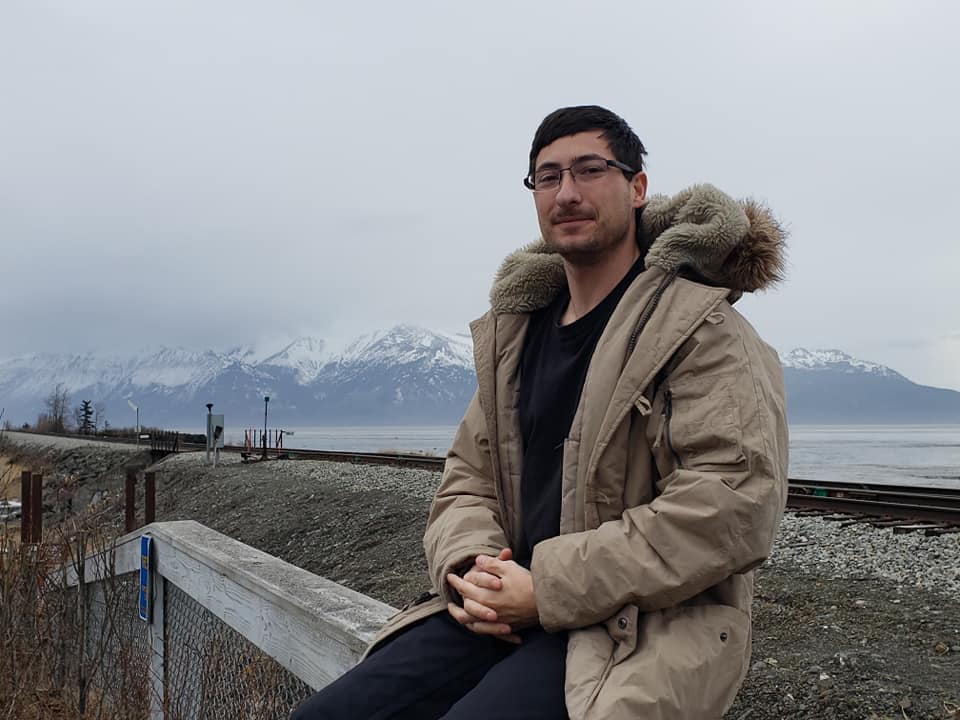
My name is Kyle Lesinger and I am a PhD student in the Department of Earth System Sciences within the College of Agriculture. I am currently researching the causes and impacts of flash droughts and how we are able to forecast these droughts with increasing skill with deep learning technology. In my spare time, I play the trumpet and I enjoy hiking, kayaking, and most other activities that take me out of the house. I am from Montgomery, Alabama and have just recently moved to Auburn to attend my PhD. I am excited to be in the NRT Climate Resilience Project because now I am a part of a collaborative community that is dedicated towards a stronger understanding of how our Earth responds to climate change anomalies and how we can effectively mitigate these impacts.
Place of Importance: My research will be focusing primarily on the Eastern portion of the United States. Agriculture is prominent in these areas and changing atmospheric conditions may affect future water supply and availability that may impact crop yields in these regions.
Justine Neville
Department of Forestry and Environmental Resources, North Carolina State University
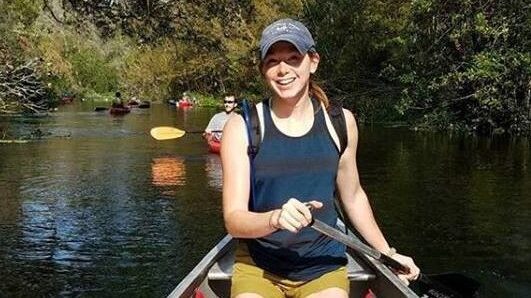
I am a third year PhD Candidate in the Emanuel Ecohydrology Lab at NC State. My research focuses on understanding saltwater intrusion and how hydrologic processes, as well as landscape characteristics can exacerbate or reduce the severity of individual saltwater intrusion events. This understanding has direct implications for many coastal environments both ecologically and socially, which I hope to convey through my research. It is my hope that my future research career will be geared in a direction that focuses on the intersection of hydrology, society, and ecology. When not conducting research, I enjoy most outdoor activities, but primarily trail running, rock climbing, camping, and paddling.
Place of Importance: Albemarle Pamlico Peninsula of NC
Brandon Ryan
Department of Geography, Auburn University
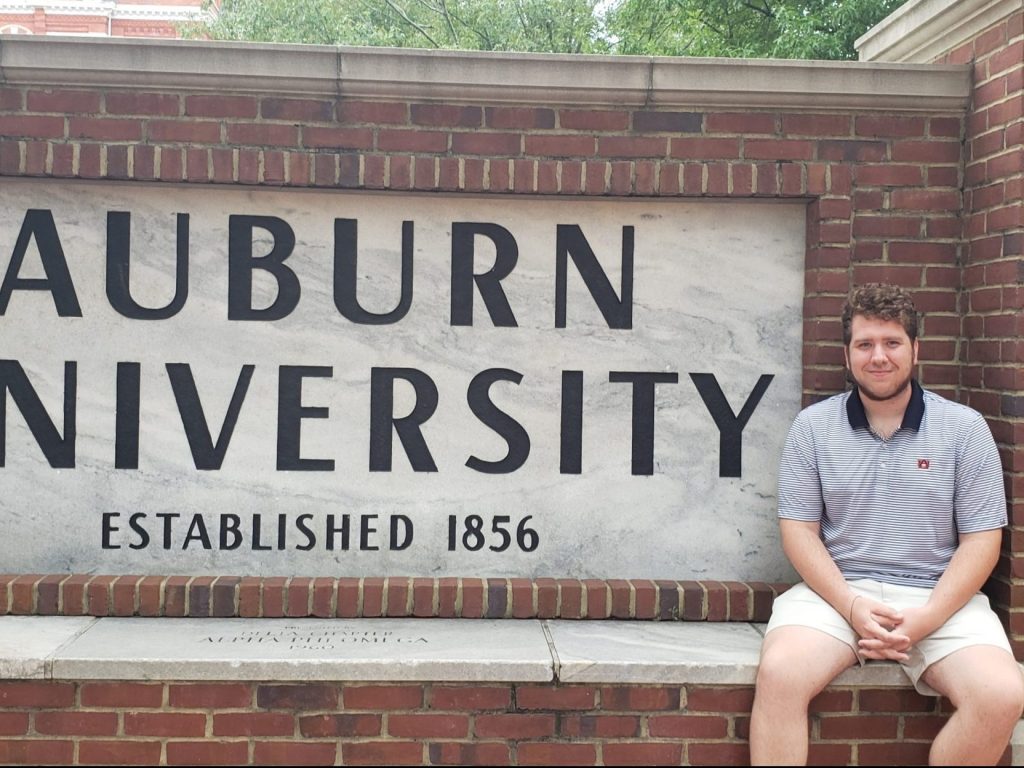
Hi! My name is Brandon Ryan. I am from Louisville, Kentucky. I recently graduated from the University of Louisville, with a degree in Atmospheric Science. In the fall I will be at Auburn University pursuing a Masters in Geography. My research will focus on Urban Heat and Health in southeastern communities. I enjoy backpacking, kayaking, baseball, eSports, and play-writing. I am excited to participate in the NRT Climate Resilience Project because it will allow me to meet like-minded individuals invested in combating Climate Change, and learn new ways to build climate resilient communities!
Place of Importance: A place which has personal meaning to me is Nashville, TN. It is a city in which I have a lot of fond memories as a kid and recently throughout college. There are many global challenges which are affecting Nashville and a large portion of southeastern cities. Prolonged droughts and shrinking of water availability. Increased flooding along the Cumberland River, as well as an increase in strong supercells, which leads to more precipitation and increased risk of tornadoes. Urban Heat which causes hotter temperatures within the city.
Jamila Roth
Department of Interdisciplinary Ecology, University of Florida
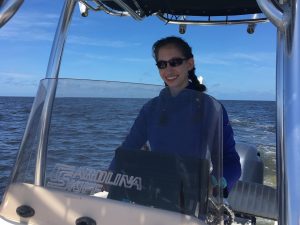
My name is Jamila Roth, and I am a PhD Candidate in Interdisciplinary Ecology at University of Florida, advised by Dr. Laura Reynolds. For my dissertation research, I am investigating the effects of environmental change on seagrass resilience and plant-herbivore interactions. In addition, I am passionate about outreach and working to make science more inclusive and equitable. My hobbies include swimming, playing the violin, and I am currently trying to learn how to surf.
Place of Importance: Gulf Coast of Florida- global changes: increased temperature, herbivory (due to tropicalization), and nutrients
Tayler Schillerberg
Department of Crop Soils and Environmental Science, Auburn University
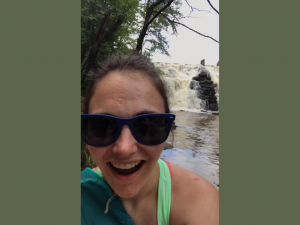
Tayler Schillerberg is a PhD student in the Di Tian research group at Auburn University. Tayler’s research interests in agriculture and climate developed as she grew up with a cornfield in her backyard in Iowa. Today, her research focuses on analyzing climate impacts on agriculture and food security to address natural and humanmade systems’ resilience. In her free time, Tayler enjoys outreach activities, reading, photography, and exploring the environment around her. Tayler is excited to work with shareholders and implement research results into policy and action with the NRT Climate Resilience Project.
Place of Importance: The intersection of agriculture and environments in her native Iowa, as well as the Iowan farmers and everyday citizens, inspires her research. Global change challenges that affect the American breadbasket include weather and climate changes, sustainability, and water quality. These challenges echo those faced throughout the world and affect global food security.
Megha Shrestha
Department of Geosciences, Auburn University
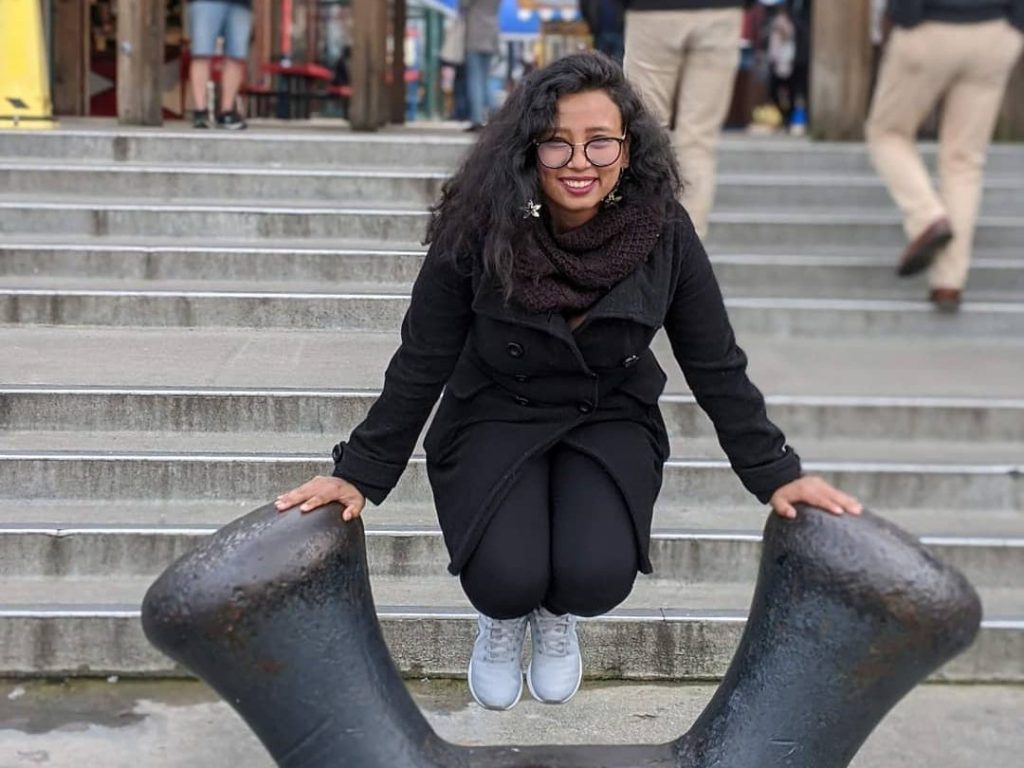
Hello All, My name is Megha Shrestha. I was born and brought up in Nepal, a beautiful mountainous country in Asia. Since my childhood I was fascinated by the discipline of Geography especially the information sharing techniques such as maps. It provided me with a perspective of the world and developed curiosity to understand how these information are created. For my undergrad I pursued Geomatics Engineering which focuses on this aspect. I worked for 3 years in Nepal in two organizations whose specialized in using geoinformation technologies for transparency, accountability and general information sharing of our local environment. I, then moved to USA to continue my education in the fall of 2017 and joined the Geosciences department here at Auburn. I have completed my masters in Geography and now am continuing as a PhD student in Earth System Science focused on sustainability and climate information communication using cross cutting and web 2.0 technologies.
Hannah Stewart
College of Agriculture, Auburn University
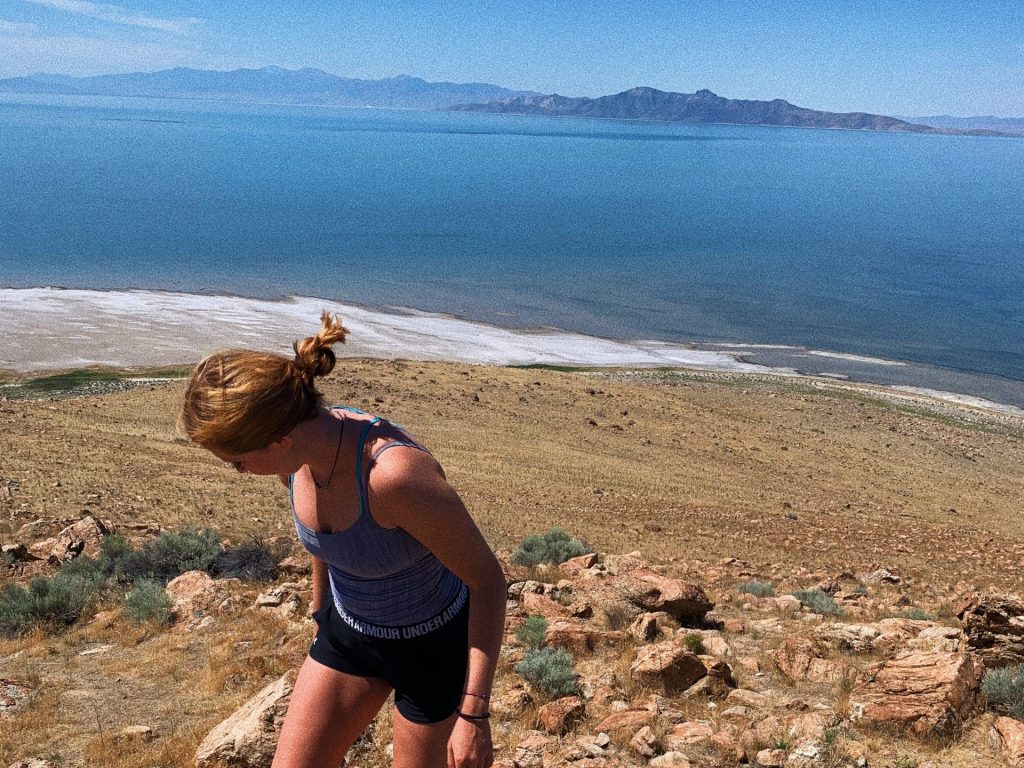
Hello, my name is Hannah Stewart I am from Victor, New York and I recently completed a double bachelors degree in Environmental Conservation and Sustainability and Resource Economics at the University of New Hampshire. I am very interested in advocating for the importance of local food distribution and the communication of sustainable agricultural practices for farmers and the general public alike. During my undergraduate years I worked in a remote sensing laboratory where we used UAS to analyze and manage both forest and agricultural field health and composition for different UNH properties. I also spent some time working with the New Hampshire Cooperative Extension Community and Economic Development team where we assessed the quality of the state’s natural capital and ecotourism. Additionally, I had the opportunity to work with a Biology Education Research Group where I assisted in a research project regarding self efficacy in biology students. Finally, I completed a comprehensive study regarding the plastic consumption and recycling habits for University students. At Auburn University I will receive my masters in Rural Sociology under the advisory of Dr. Worosz. I am extremely excited to be a part of the NRT program because I have never experienced the Southern perspectives of farming and conservation and I would love to broaden my horizons.
Place of Importance: A specific place which has significance to me are the Finger Lakes in Upstate New York. The Finger Lakes region is known for its vineyards which are a popular destination for summer tourism. However, due to uncharacteristically high temperatures earlier in the growing season, grape buds open and are subject to breakage and damage. Thus, if sudden cold weather approaches from Canada maturing grape buds will suffer. Each bud loss can eradicate a pound of grapes, significantly affecting yields and wine production. Upstate farmers are trying their best to adjust to unpredictable temperatures, however need assistance and support in the coming future to preserve the valued wine culture.
Ámbar Torres-Molinari
Department of Applied Ecology, North Carolina State University
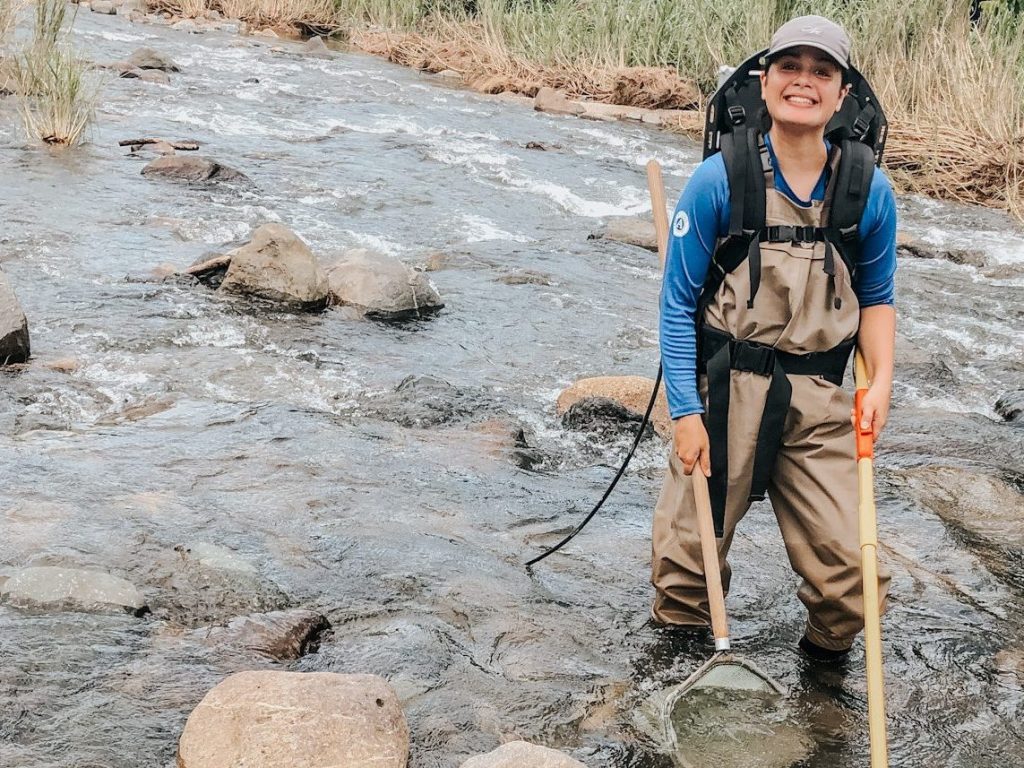
I am a Fisheries, Wildlife, and Conservation Biology Master’s degree student at NC State University. My research focuses on the population dynamics of American Eel in Puerto Rico and the effects of climate change on this species. I am from San Juan, Puerto Rico. I have lived in Puerto Rico my entire life until this year where I decided to start my graduate work in Raleigh, NC. Outside of academics, I enjoy being connected with nature, staying active, reading, and music. I am obsessed with animals, and dogs are my greatest weakness!
Place of Importance: Puerto Rico, in addition to being my research location is also my home. This has a huge personal meaning to me because I still have the opportunity to work in the place I love the most. Partnering with agencies from Puerto Rico during my research also gives me the opportunity to build important connections that will make it possible to work on improving the island’s natural resource management and conservation priorities. Islands in the Caribbean are projected to received the direct effects of climate change, and Puerto Rico is not an exception. During the last 5 years, the island has faced multiple environmental challenges, including: catastrophic hurricanes, major droughts, and earthquakes. All of these challenges affect the islands ecosystems in a major way.
Natalie Von Tress
Department of Biological and Agricultural Engineering, North Carolina State University
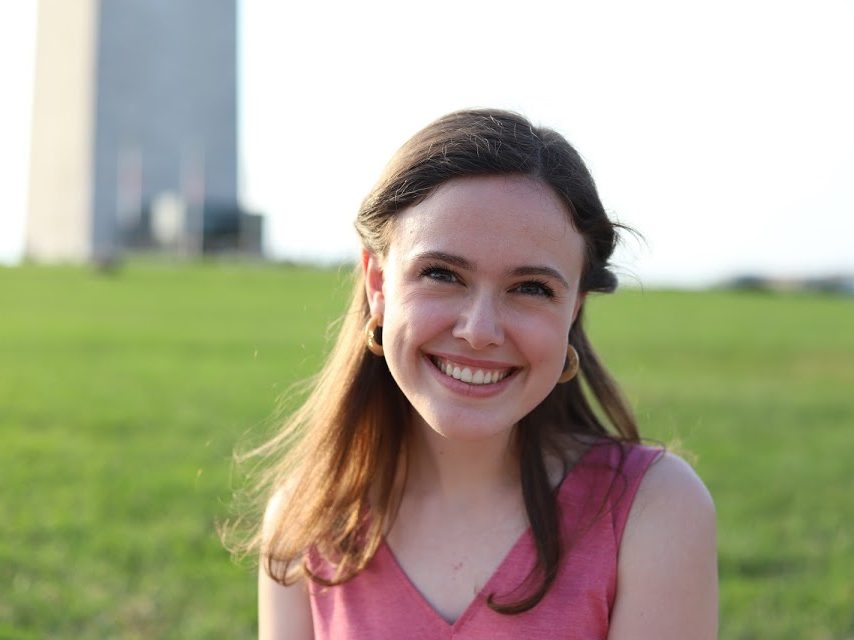
My name is Natalie Von Tress and I am a second year master’s student at North Carolina State University. I graduated from the University of Arkansas in May of 2019, where I studied Biological Engineering and researched treatment methods for harmful algal blooms. In my graduate work, I am studying a different facet of the same issue, researching the transport of harmful algal blooms from reservoirs to downstream across water control structures.
Place of Importance: My research location is Lake Okeechobee in South Florida. The hydrology surrounding Lake Okeechobee has been altered over the past century to allow for the urban and agricultural development of the region. This development is largely attributed to accelerating eutrophication of Lake Okeechobee and its downstream estuaries, where algal blooms have led to significant economic and ecological loss.
Climate Adaptation and Immersion Places of Importance and Research Locations Map
View an interactive version of this map.
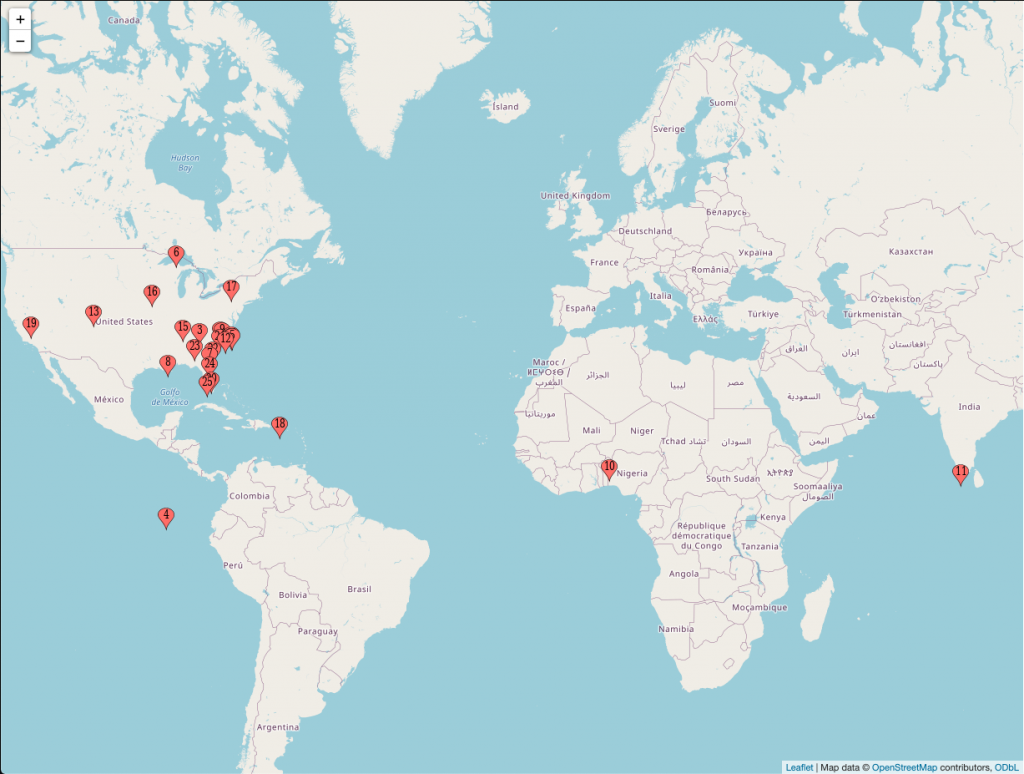
Meet the Team
Our production team has worked hard over the past few months to plan and organize the Climate Adaptation and Resilience Immersion. Learn more about them below and don’t hesitate to reach out to the emails provided if you have any questions throughout the week.
Derek Aday
University Director, Southeast Climate Adaptation Science Center
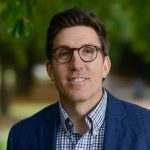
Research in my laboratory group focuses broadly on aspects of aquatic ecology, conservation biology, fishery science, and environmental toxicology. We work at the interface of basic and applied ecology, addressing issues related to conservation and management of game and non-game fish species, invasive species dynamics, population dynamics and community ecology of freshwater and marine fishes, and the impact of aquatic contaminants on fish, wildlife, and human health. In general, our research relies on strong theoretical underpinning and contemporary tools to address current problems and issues in aquatic systems. Recent research has focused on mercury dynamics, ecosystem-level impacts of invasive species in impounded systems, movement patterns and habitat use of fishes in response to environmental stressors, and endocrine disrupting compounds associated with intersex fish.
Katie Brown
Academic Programs Administrator, Department of Geosciences, Auburn University
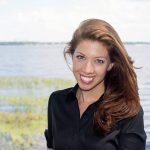
I am a new program coordinator for the Auburn University NRT Trainee program.
Contact information: ksn0006@auburn.edu
Ryan Boyles
USGS Deputy Director, Southeast Climate Adaptation Science Center

Dr. Ryan Boyles is the Deputy USGS Director of the Southeast Climate Adaptation Science Center (SE CASC), one of nine centers in the United States at the core of the Department of the Interior’s adaptation and conservation goals. He focuses on using weather & climate science and data to support effective management of natural and cultural resources. Ryan is a native of North Carolina and an applied climatologist with emphasis on developing and delivering climate information and climate services relevant to decision making on various time scales for a range of sectors. Over the past decade, he has lead development of climate datasets, web tools, and climate services targeted for use by human health, agriculture, and natural resource management sectors. These activities focus on the use of historical climate observations to assess the sensitivity of these sectors, experimental forecasting to provide short-term and seasonal guidance, and climate model downscaling to explore the potential changes in longer-term risk. Ryan led the development of more than 40 online tools for climate data search, analysis, visualization and applied decision support. He has received more than $11M is external grant funding between 2007-2016, and has given more than 100 invited community and professional presentations since 2007.
Mitch Eaton
USGS Research Ecologist, Southeast Climate Adaptation Science Center
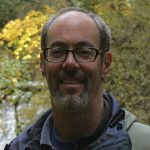
My research focuses on applied wildlife ecology, with a two-fold emphasis on decision analytic techniques for management and the use of quantitative methods for ecological inference. My research program includes parameter estimation and modeling species distribution/abundance and integrated species-habitat modeling to promote endangered species conservation. My work in decision analysis involves close collaboration with decision makers and their stakeholders to characterize management goals, the decision context and the most efficient use of science and monitoring to support decision-making. I apply principles of adaptive management to allow decisions to be made under uncertainty while formalizing learning through comparisons of observations with predicted system dynamics and behaviors.
Cari Furiness
Program Manager, Southeast Climate Adaptation Science Center
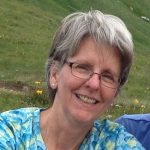
With a background in biology and forest ecology, Cari has worked on a broad range of research projects while at NCSU, focusing on issues such as air pollution and environmental sustainability. Previous projects include: a study of tropospheric ozone and biogenic precursor emissions in the Southeast; investigation of the use of animal manures in forest fertilization in NC; estimation of carbon sequestration in Fraser fir tree plantations; evaluation of the potential for bioenergy crop production on marginal lands; developing symposia on topics of environmental innovation and climate adaptation. She has played a long-term role coordinating precipitation monitoring sites in NC as part of the National Atmospheric Deposition Program National Trends Network. Cari is the Program Manager for the Southeast Climate Adaptation Science Center, and has also worked to develop the Global Change Monitoring Portal, a centralized portal and catalog of environmental monitoring programs that are relevant to assessing climate change in the Southeast.
Contact information: cari_furiness@ncsu.edu
Michelle Jewell
Chief Science Communicator, Department of Applied Ecology, North Carolina State University

Michelle Jewell is the lead science communicator for NC State’s Department of Applied Ecology. Her scicomm work has been featured on Discovery’s Shark Week, the BBC, and even The Bachelor.
Aranzazu Lascurain
Assistant University Director, Southeast Climate Adaptation Science Center
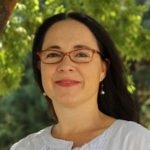
Aranzazu has a broad background in environmental conservation and resource planning. She has worked for city, county and state agencies in the west on water quality management and endangered species protection. She has worked in environmental education in the South Pacific Islands and international climate change policy while at Stanford University. Before coming to the SE Climate Adaptation Science Center she was an extension agent at the NC Solar Center where she worked under the Dept. of Energy’s Clean Cities mandate to displace petroleum use with alternative fuels. She has a B.A. from University of California, Berkeley and a M.S. from University of Oregon.
Contact information: alascur@ncsu.edu
Karen McNeal
Associate Professor, Department of Geosciences, Auburn University
Karen McNeal teaches undergraduate and graduate courses in Earth System Science, Global Change, Climate Change Literacy and Communication, and Discipline Based Education Research in the STEM Undergraduate Classroom. Students in her group conduct research in the field of geoscience education/geocognition and typically use mixed methods research (e.g., qualitative and quantitative approaches) to investigate geoscience teaching and learning challenges in formal and informal settings. Her work ties together the affective and cognitive domains of learning in the geoscience education/geocognition field. Her group uses a suite of tools to investigate including psychomotor tools (e.g., eye-tracking, pupillometry, and skin biosensors), psychometric tools (e.g., concept inventories), and open-ended approaches (e.g., interviews, concept-maps, etc.) to measure people’s engagement, conceptual understanding, and perceptions about the Earth.
Ashlyn Shore
Science Communications Specialist, Southeast Climate Adaptation Science Center
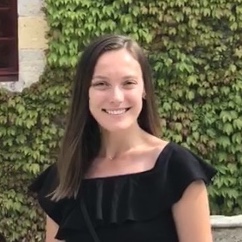
Ashlyn has a background in climate science communication, GIS, and environmental science. She recently graduated from the Climate Change and Society Master’s program at NC State and also earned a Geographic Information Systems Certificate. Her undergraduate studies in Psychology and Environmental Science provided her with a unique background for this graduate program that connects climate science to the broader community. During her master’s, she worked on a team to propose an update to the education and outreach initiative of the NC State University Climate Action Plan. She hopes to use this experience, along with the skills that she has gained at the SE CASC, to fulfill her research interests of exploring the role that an effective climate change communication and education campaign may play in reshaping an individual’s actions, especially at the middle school level.
Contact information: arshore@ncsu.edu
